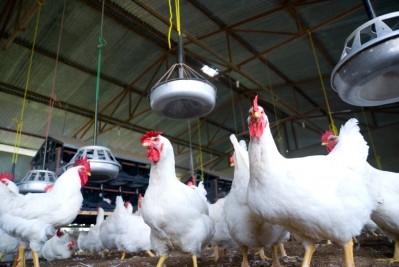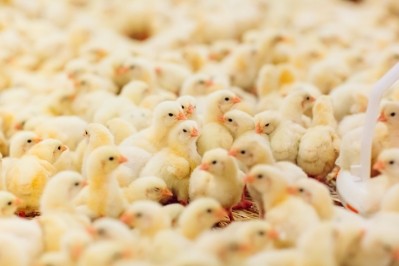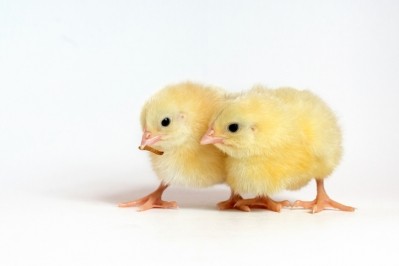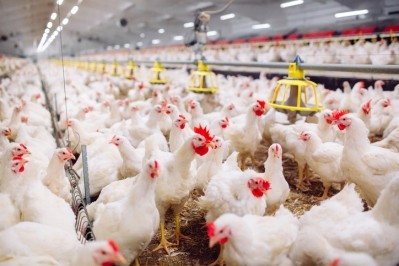A trip through the archives: Ways to tackle heat stress in birds

Adding vitamins A and E to the diets of laying hens exposed to high temperatures can support egg production, bird health and feed conversion, according to a piece published in March 2019.
An international team of researchers from the US, Pakistan, China and Egypt explored the use of vitamins A and E to alter bird health along with egg production and quality when fed to birds facing heat stress. The researchers published details of their work in the journal, Animal Nutrition.
“The objective of the present study was to evaluate dietary supplemental levels of vitamins A and E, fed separately or combined of laying hen diets on productive performance traits, egg quality traits, and blood hematology and chemistry during hot summer seasons,” explained the authors.
The research team saw that the feed additives improved the feed conversion ratio (FCR). However, egg quality was not altered, although some elements within bird blood were changed by the inclusion of the fed vitamins.
“It could be concluded that the layer diets supplemented, individually or combined, with vitamins A and E had good results in alleviating the harmful impacts of summer ambient temperature on different aspects of health indices and productive performance,” they said. “Our results confirm the efficiency of vitamin A in enhancing the productive performance traits.”
“The combination of vitamins A and E (16,000 IU vitamin A plus 500 mg vitamin E per kilogram diet) is preferable for obtaining better production of laying hens reared under hot summer conditions,” they added.
Supplementing mature layer hen feed with grape pomace flour when they experience heat stress may improve feed intake, bird production and egg quality following storage, noted scientists in another report from 2019.
Solutions for older birds
A team of researchers in Brazil explored the use of grape pomace flour (GPF) in the diets of older laying hens facing a heat stress challenge.
They published their research in the Journal of Thermal Biology.
“Our hypothesis is that GPF added in the diet of laying hens may increase the serum levels of antioxidants, and consequently, improve egg quality and aid egg conservation during storage” they said. “Therefore, the aim of this study was to evaluate whether the addition of GPF in the diet of laying hens at the end of their productive cycle could exert benefits on their health, performance and egg quality.”
The researchers saw that adding amounts of grape pomace to the layer’s diet improved feed intake and the percentage of eggs laid. Stored eggs from hens receiving the supplement diets also had higher antioxidant capacity and less lipid peroxidation compared to eggs from chickens on the control diet.
“The use of GPF in the diet of laying hens promoted enhanced productive efficiency and stimulated the antioxidant defense mechanism system, exerting beneficial properties on animal health, under conditions of heat stress,” they said. “Also, GPF was able to reduce egg lipid peroxidation and to increase antioxidant levels, contributing to improved internal egg quality, as well as to maintain yolk pH of stored eggs similarly to fresh eggs.”
“Overall, the use of GPF for laying hens at the end of the productive cycle exerted benefits to development, egg quality and animal health,” they added.
Modifying crude protein levels
Another group of Brazilian researchers, as per an article published in 2020, identified the ideal crude protein level for broiler rations to ensure performance during thermoneutral or heat stress conditions while reducing nitrogen excretion.
A team from the Federal University Minas Gerais explored the use of a reduced protein diet in broilers facing normal or heat stress conditions in a series of feeding trials. The study was published in the journal Animal Feed Science and Technology.
“The objective of the present work was to evaluate digestibility and energetic utilization of diets formulated for variation in protein level but with constant energy level, and their consequences for broiler performance under heat stress and thermoneutral environment.”
The authors found that for birds, in both normal and heat stress conditions, lowering dietary protein to 160g/kg crude protein (CP) reduced the digestibility of protein and ether extract and lowered the availability of net energy. Balancing diets for amino acids did not allow birds on the 160g/kg CP diet to match results for birds on the 220g/kg CP diet, they said. Diets with low CP content also proved to be more expensive.
“The level of 200 g/kg crude protein in the diet is ideal for maximizing broiler performance in thermoneutral temperature and cyclic heat stress, besides providing lower nitrogen in the excreta.”













